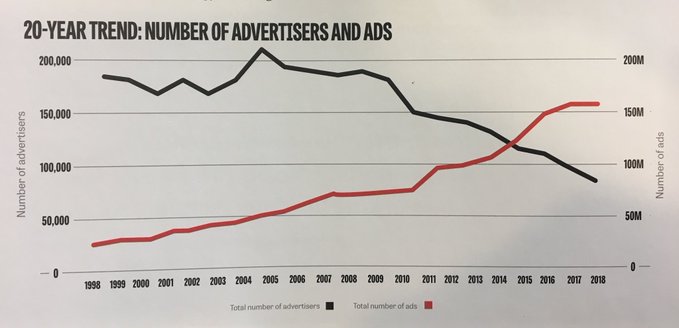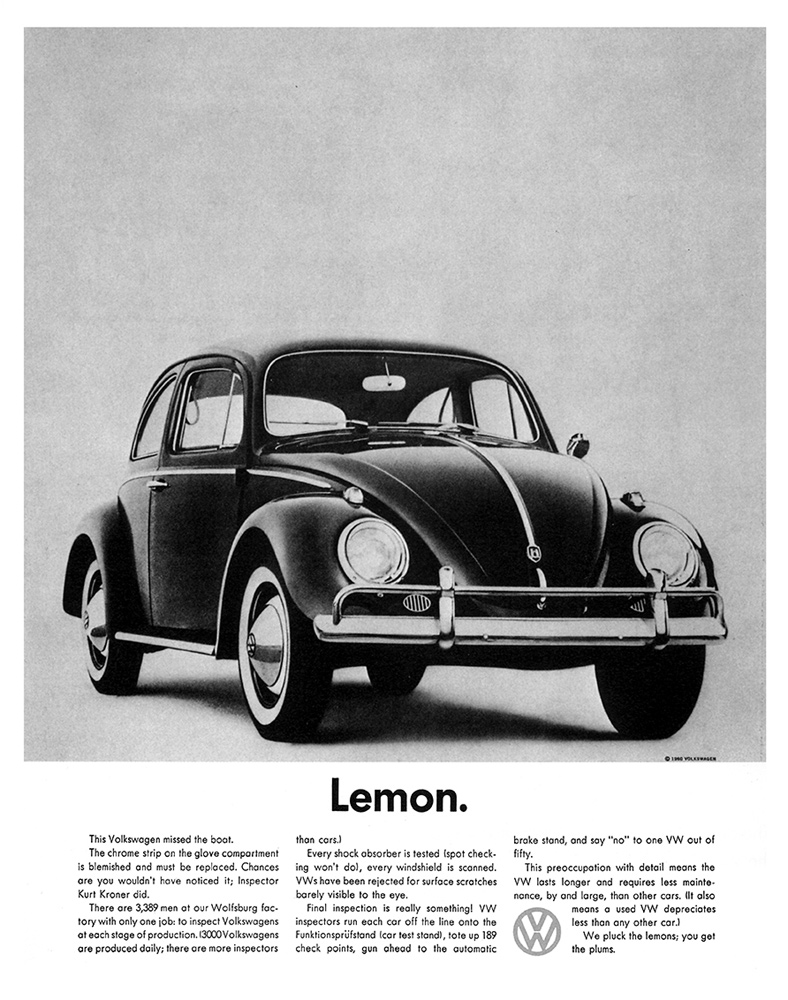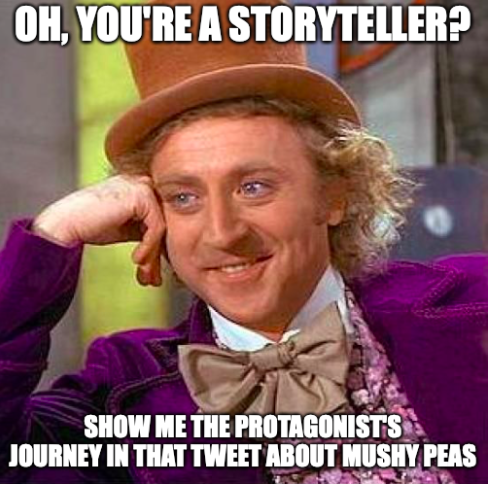6 times more=6 times worse
If you’ve been in advertising for a while you’ve probably noticed that the number of ads has proliferated:

This shows that, despite the number of advertisers halving over the last decade, the number of advertisements has increased sixfold.
Clearly this process began as digital came to the fore: one press ad or poster became many standard banners, queen banners, Instagram posts, Facebook Stories, Snapchat whatever-the-fuck-happens-on-Snapchats etc. Each TV ad became a rich media this or a preroll that, and even radio ads found new ‘leases of life’ on podcasts and Spotify.
So has the industry taken on six times as many people to handle all this extra work? No (with a little bit of yes). I think we can all agree that you don’t need a new person to make each banner, so most of the extra work has just increased the hours of each copywriter and art director, for no concomitant increase in pay (sigh). In addition, feel free to look back over those years and see if the ads have improved (spoiler alert: they haven’t). That’s because producing six times the work in the same amount of time for less pay is not a well-trodden path to larger amounts of brilliance. So to be a little more accurate, the number of shitty ads has proliferated.
Thanks for nothing, Tim Berners-Lee.
Returning to that ‘little bit of yes’: there are more people involved. The press, posters, TV and radio used to be done by a few teams working into a single CD. Now we have digital, social, experiential, SEO, global and many other kinds of CDs and creatives.
But in the interests of keeping costs down, there’s been a general policy of having them all smoosh up together, tackling briefs that are some way outside their wheelhouses because that saves money. Sure, we’re all ‘creatives’ and sure, we can all apply ourselves to producing ideas and executions in newer media (let’s face it: a banner is just a tiny digital poster and a pre-roll ad is just a short, woefully underfunded TV ad), but the barrier to entry used to be very high. When there were fewer jobs they tended to go only to the most talented and driven. Now you can find your way into the Ritz wearing ripped jeans and a baseball cap, scratching your arse and… you get the picture.
And yes, I get to use the word concomitant again: that has come with a concomitant reduction in quality. Sorry, but it has. It’s just maths. No judgement on any of the newcomers.
The real issue here comes at the CD level: with lots of disciplines involved, the person who rises to the position of CD might not be entirely qualified to do that job for every medium. And that means great TV/print CDs might not be wonderful at judging and shaping influencer-led social takedowns that dovetail into a global experiential airline tie-in. But equally an influencer-led-social-takedown-that-dovetails-into-a-global-experiential-airline-tie-in CD might not be a great judge of TV. Or radio. Or art direction.
And yet they might have to be the person that makes those judgements because they are the CD. And they might have risen to that position because the rest of management likes them. And the rest of management might like them because they smile often and are ‘good in meetings’. And when no one really knows or cares if the work is 7/10 instead of 9/10, all of this is permitted and encouraged.
Six times the work, some less extensive multiple of staffing, no increase in salary, diversity of skillsets applied to inappropriate tasks…
Now that’s how to fuck up an entire industry.


